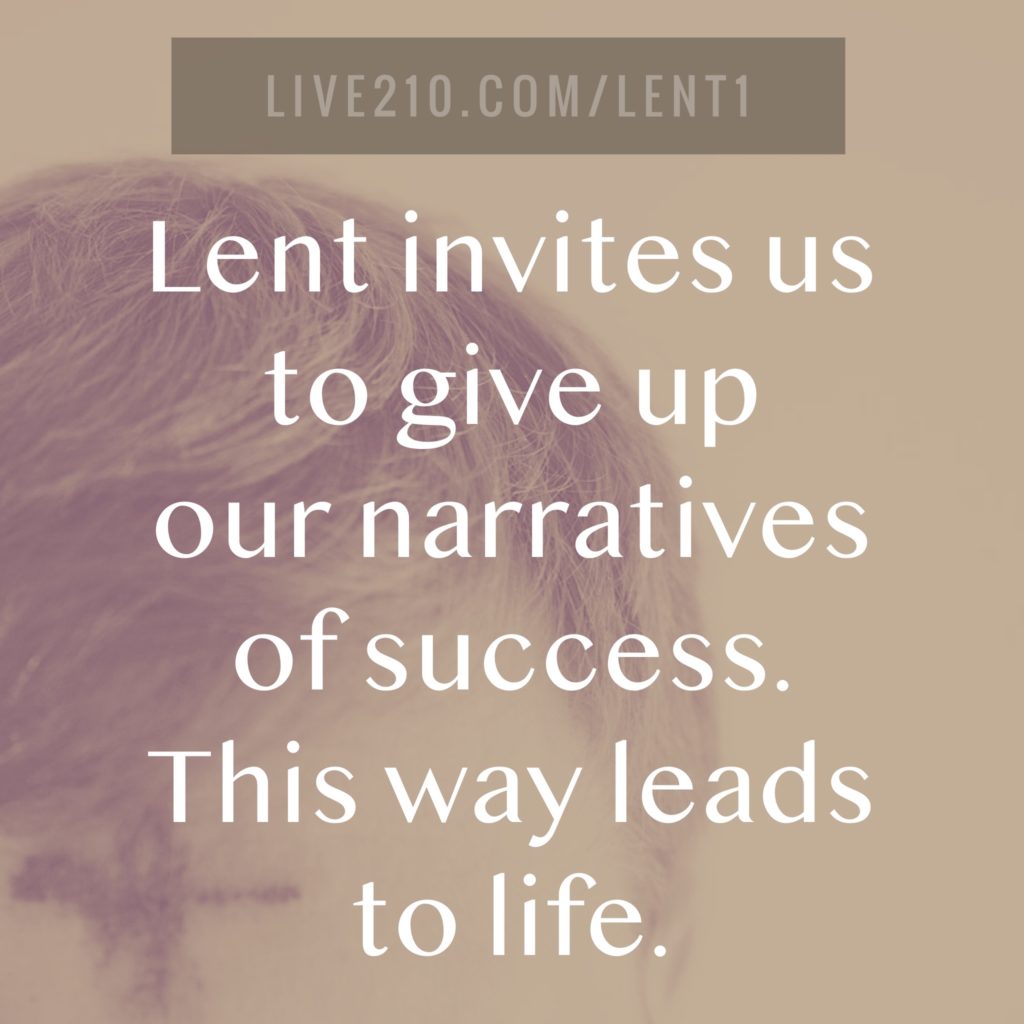5 min. to read.
(This series is an edited and updated version of reflections I wrote during Lent of 2021. Because I’m in graduate school I don’t have time to write brand new material for 40 days straight, but I am using these for my own Lent devotion, updating them as seems right for my journey currently and the world we find ourselves in. I invite you to join me on this daily process of reflection during Lent this year.)
Today is Ash Wednesday. Ash Wednesday, at the end of two full years of the COVID pandemic and all the disruption, division, and death it’s brought. Ash Wednesday, on day 7 of Russia’s unprovoked invasion of Ukraine which holds as yet unclear ramifications for the world. If Lent is about facing our human frailties and sin, In some ways it feels like we’re already on the world’s longest Lent. And yet, with the weight of this this long season, and the fragmented mind I’ve experienced, I feel the need for Lent more acutely than ever.
For Lent, I’m reading scripture that walks through significant events in Jesus’ life and reflecting on what those events might mean for me. I invite you to join me in this daily practice. Today we start with Mark 8:31-38.
Here in the 8th chapter of Mark’s telling of Jesus’ story, we come to a shift. Jesus begins to tell his friends and followers that he will head to Jerusalem, undergo great suffering at the hands of the leaders, be killed, and then will rise again. His disciples don’t understand what he could possibly mean. Peter even rebukes him.
Jesus’ response to Peter’s rebuke is startling. He says that Peter has his mind on “human things” rather than the “things of God.” I expect Peter was surprised and hurt by this. Wasn’t Peter’s concern for Jesus’ ministry one of those “things of God?” Wasn’t Peter’s desire for Jesus to show the world he was the promised salvation a “thing of God?” How could Peter’s desire to help Jesus be a “human thing,” rather than a “Godly thing?”
Perhaps the “human things” Jesus refers to are our narratives of success. In the story some of us would choose, we would pursue influence, accomplishing good and Godly things with power. We would want to see Jesus’ ministry, and our association with it, as effective, dynamic, relevant. We so easily say that a ministry or business or endeavor or country is “blessed” when all the indicators are positive—prosperity, happy people, impressive accomplishments. THAT’s how you know the Spirit is working, right?
Instead Jesus teaches that the way to follow him is to deny our instinct to elevate ourselves and take up our cross. He says if we want to save their lives, we must lose them. None of this seems like victory.

Jesus says that the path forward is the path through death. Of course, there is the victory of resurrection, but that kind of victory can only happen after dying. Who wants to die? In his book The Unvarnished Jesus, Brian Zahnd wrote: “Jesus alone seems to understand that a breakthrough into new life is only attained through the experience of loss…Jesus invites us to follow him, not in a march to greatness, but in the cross-carrying way of self-denial.”
American Christianity—at least the form that raised me—is built differently. Self-denial is meant to refer only to personal purity. Avoid the things that feel good; the things we’ve decided are off-limits. In all other ways, though, expect blessing. God will work in your life. God will lead you. God will bless you and your family. God can be seen at work in the vibrant growing church. God can be seen in the unexpected financial windfall that pays your debt. God can be seen the way that our group is influential in the community. Let’s “bring our country back to God,” and trust that in doing so we will be blessed with generations of peace and prosperity.
In all our narratives, we want to avoid the cross, but as far as Jesus is concerned, the cross is the only way to life. “Christianity is not a theology of glory, but a theology of the cross,” said Luther. He was right, but when we diminish the cross to being merely a divine mechanism to make us right with God and get sinners to heaven one day, we empty out what Jesus actually taught. With our minds “set on human things,” we make the cross into a key that opens God’s treasury of blessings. Jesus, though, told his followers that the “way in” was the “way through.” We lose our lives to find them. We die to live again.
These words are not about eternity. Or at least, not just about eternity. This is about today.
Lent is the long walk towards the cross. It is not simply or only to remind us of Jesus’ historic cross, but also to show us that in our own life we enact the cross. At least we do when we consider things from God’s perspective—like Jesus was challenging Peter to do. The goal isn’t to win, or to be influential, or to make great things happen. Lent invites us to give up our narratives of success.
This way leads to life! The goal is to turn full outward, to serve, to love, to—at the end of the day—die for others.

The way to be blessed is to be a blessing to others. There needs to be a redefining of our understanding of what blessing and success mean.
Yes!
Great word today
I think it’s also about seeing God and God’s blessing in the painful, difficult, and tragic things.
As Mr. Rogers said, look for the helpers. Look at the rise in courage and of courageous people in the face of injustice. Those who resist with sunflower seeds instead of violence in the face of violent injustice.
I think we get caught up in the feel good feelings of victory and success and that we judge the harder, harsher feelings as punishment and injustice, so forget to seek God in those times and spaces.
We easily see God’s blessings in the victories but can we see them in the midst of battles which we may not win?
You wrote “we judge the harder, harsher feelings as punishment and injustice.” I think this is insightful, Lillian. We are wired up to measure the quality of each moment by how we feel and if our needs are being met. It’s natural, I think. But we can easily transpose that into a measurement of our worth, or even an indicator of God’s presence. That’s not helpful–especially since suffering seems to occupy more of life than pleasure and contentment. We just set ourselves up for an endless treadmill of feeling alone and punished. I think you’re right that the way forward is to begin to see God’s presence with us in the place of suffering (and maybe then to adopt that same stance, being with others in their suffering.)+